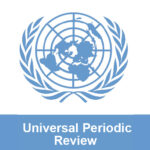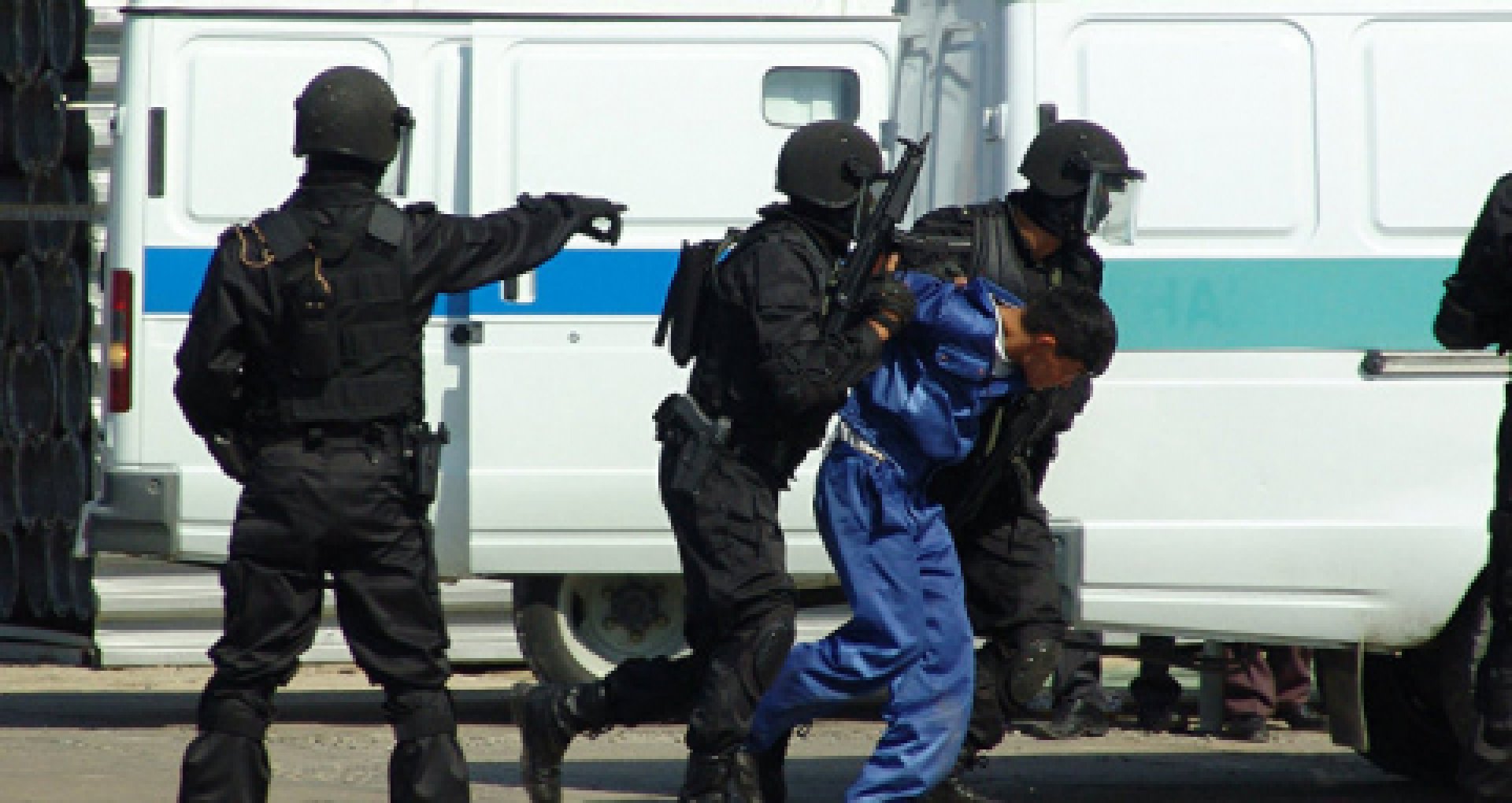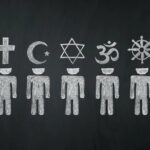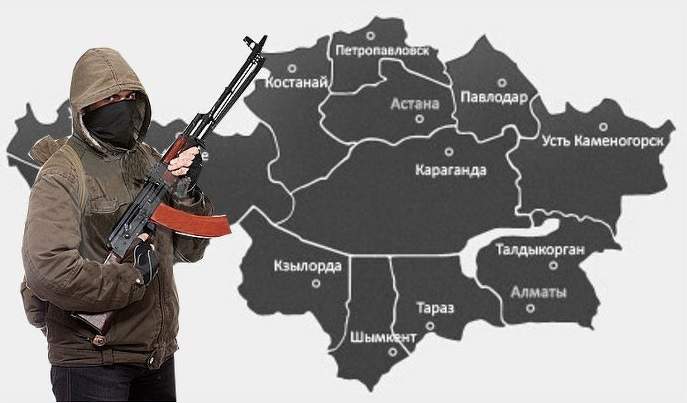The Analysis of the Draft Law of the
Introduction
The draft law “On religious activity and religious associations” and concomitant draft law introducing changes in legislative acts on issues of religious activity are introduced in the Lower Chamber of the Parliament of Kazakhstan by the Government after the speech of the Head of the State N. A. Nazarbaev at the opening of fifth session of The Parliament of the fourth convocation (01.09.2011).
In his speech the President posed to the Parliament a task: to consider in the course of the current session the draft law “On religious activity and religious associations” with the necessity “not limiting rights and freedoms, to deal with religious extremism”. At the same time in his speech the head of the state did not declare the law on religion urgent or of first priority (about which an appropriate document should be submitted to the Parliament).
We are concerned about the hurry and the undertime of passing the draft laws by the Parliament of Kazakhstan.
For instance, a week after the speech of the Head of the State 7.9.2011 the draft laws were taken into elaboration by a decree of the Lower Chamber of the Parliament.
At the same time the Committee on legislation and judicial-legal reform of the Lower Chamber of the Parliament is charged to consider them before 19.1.2011.
However 20 September 2011 the work on the draft laws was completed, and 21.9.2011 they were introduced for consideration of the lower chamber of the Parliament and were passed in two readings.
22 September 2011 the draft laws were presented in the Senate of the Parliament.
The date of consideration of draft laws at the plenary session of the Senate of the Parliament has been planned to be held on September 29, 2011.
Thereby, the Parliament of Kazakhstan decided that it is necessary to pass the laws, concerning fundamental rights and freedoms of man in a very short time – less than one month.
We are concerned by the fact that experts involved in the issues of protection of religious rights and freedoms who before that took part in the similar sessions of the Parliament, such as the Association of Religious Organizations of Kazakhstan (AROK), the International Bureau on Human Rights and Observance of Law et al. were not allowed to take part in working groups in spite of the fact that they submitted the application in due time.
The draft law was being elaborated and passed in the closed regime without being published in mass media and broad discussion by the public. The principle of transparency of making decisions (which is a certain guarantee that rights and freedoms will not be limited on the foundation of imaginary threat and in case of really existing problems which would be solved in advance), was not observed.
At the same time, these draft laws are not for solving the problems mentioned by the Head of the State, because they do not strengthen the norms on counteraction to extremist activity. At that, the norms of a repressive character are introduced and intrusion of the state into activity of religious unions and private life of believers is strengthened.
Initial dispositions of the draft law
1. The law “On religious activity and religious associations” in contrast to the former law “On freedom of religion and religious associations” not only stroke out the “freedom of religion” from its title and from the articles of the law, but its goal is to limit and strictly regulate that freedom by authoritative body.
2. The preamble of the law declaring respect to the rights of believers actually sets the superiority of Hanafi Islam and Orthodox Christianity over other religions towards which the state is going to set a selective attitude, which violate the constitutional equality.
3. In subparagraph 2) of the article 1 of the law, the notion “religious activity” is revealed in a narrow-logic meaning and only as an activity the purpose of which is satisfaction of spiritual needs of believers. At that the notion “missionary activity”, revealed in subparagraph 5) of article 1 according to the meaning of this norm is not referred to religious activity, because it can be directed also on the unbelievers. This notion contradicts common sense, because religious activity is larger and includes in itself missionary activity.
4. Subparagraph 5) of article 1 actually extends the notion “missionary activity” to the believers, attending registered religious associations and confessing their religion, giving them status of missionaries and making them obliged ( article 8 of the law) to pass a registration in a state body every year. At that the state gives itself the right not to give such permission, limiting the constitutional right of a believer for religion. This norm restricts the right on the freedom of conscience guaranteed by paragraph 1 of article 22 of the Constitution of the RK and cannot be limited according to paragraph 3 of article 39 of the Constitution of the RK.
5. Subparagraph 6) of article 1: “authorized state body” instead of regulating legal relationship is given the right to regulate religious activity i.e. to interfere and determine the religious needs of believers.
In case of extensive interpretation of this paragraph, the state can not only set the order of divine service (the time limits, on which days services can be conducted, etc.) but also it is given the right to deal with doctrinal issues as well as to dictate to priests which sermons are necessary at the moment to satisfy religious needs of believers, also how to interpret norms of Scriptures of a given religion with directions what is allowed at a divine service and what is forbidden.
We believe that this is a direct violation of norms of the Constitution, according to which the state is secular, that is, state and religion are separated from one another and censorship is forbidden.
In spite of the fact that paragraph 1 of article 3 of the law declares that the state is separated from religion and does not interfere in the activity of religious associations, the creation of an authoritative state body, practicing state regulation in the sphere of religious activity, points to the opposite. That is to the intrusion of the state into religion and activity of religious associations.
6. By paragraph 11 of article 3 the activity of unregistered religious associations is forbidden.
The establishing of obligatory registration and prohibition of activity of unregistered religious associations and groups deprives citizens of the right to confess their religion together with others and this is per se is a limitation of the right for the freedom of conscience.
Besides, the demand of obligatory registration contradicts p.1 of article 39 of The Constitution of the RK, according to which rights and freedoms of man and citizen can be limited only in measure, necessary for protection of constitutional system, maintenance of public order, rights and freedoms of man, the health and morality of population.
The activity of unregistered religious associations and groups in itself does not threat constitutional system, public order rights and freedoms of man, the health and morality of population, which indicates inconsistency of prohibition of activity of such associations and groups with p.1 of art.39.
This norm also contradicts article 18 of the International Covenant on civil and political rights, ratified by
7. Paragraph 13 of article 3: “the activity of religious associations involving people in their activity by means of charity is not allowed.
Any religious association involved in charity believes that its example will motivate people to stick to certain convictions. There are no reasons for existence of such an article. It is impossible to understand by which criteria involving in religious activity will be qualified, if a citizen starts attending divine services.
8. Paragraph 16 of article 3: “The leader of a religious association is obliged to take measures against involving or participation of minors in the activity of a religious association in case if one of parents or legal representatives objects against it.
This norm de facto lays the functions of state supervision on priests. It is not understandable how a priest is going to take such measures? This norm limits the rights of minors to the freedom of religion as well as the right of each parent for upbringing a child according to his religious and worldview. (art.35 of the Law of the PK “On the rights of child”
9. In article 4 of the law a competence of an authorized body is established, according to which the authorized body is given the functions to control religious associations, it forms and realizes main directions of state policy in the sphere of religion, which contradicts the principle of separation the state from religion, established by the same law.
10. In subparagraph 1) of paragraph 1 of article 6 it is said that one of the reasons to conduct a religious studies expertise are applications of physical or legal person. These grounds are looking inappropriate because of two reasons: first it is not seen according to which grounds citizens and legal persons will initiate such expertise; second: religious associations are initially put in the category of suspects, if anyone can make a request to conduct an expertise of any religious association.
11. Subparagraph 2) of paragraph 1 of article 6 as well as paragraphs 2, 3 of article 9, establish limitations on religious literature.
In this case a presumption of danger of religious literature is evident: issuing, import, receipt into libraries of Koran, Bible, other recognized recourses must undergo religious studies expertise. This disposition testifies about intervention of the state in the activity of religious associations.
According to pp. 16.9, 16.10 of the final document of the Vienna meeting of representatives of states-participants of the convention on security and cooperation in Europe (1986), the participating states are going to respect the right of believers and religious associations to obtain and use sacred books, religious editions in the language according to their choice and other articles and materials, pertaining to confession of religion or faith and own them; to allow religious cults, institutions and organizations to produce, import and distribute religious editions and materials.
12. In subparagraph 4) of paragraph 1 of article 6 it is stated that one of the reasons of conducting religious studies expertise is “…import of informational materials of religious content, except for material for personal usage”.
The developer did not specify what amount of informational materials is sufficient for personal usage. A state employee (public officer) will be arbitrary interpreting what amount of the imported materials is sufficient for personal usage. By this state employees (public officers) are put in a position when for a bribe it will be possible to recognize a wagon of informational materials as “…intended for personal usage” in one case and in the other 2-4 booklets will undergo religious studies expertise. Thereby books, intended for personal usage may become a pretext for blackmail for a bribe by a state employee.
This remark is not taken into consideration by the developers of the draft law[1].
13. In paragraph 3 of Article 6 objects of religious expertise include foundation and other religious documents, spiritual (religious) education programs, informational material with religious content and religious objects.
The draft law does not detail what documents should be classified as “other.” That may be business correspondence, accounting and financial records, orders and instructions for basic operations and personnel, civil and labor contracts. It is necessary to specify their full list. Otherwise, the norm may be subject to broad interpretation and a basis for corruption offenses. In addition, it can be one of the measures to intervene in the activities of religious associations, which in turn leads to violation of constitutional right to freedom of religion.
Second, it raises doubt on the validity of possible religious expertise of religious articles. In our view, an object of religious significance – it is an individual specific thing that is material and is used for the administration of certain religious procedures, rituals and ceremonies. Those include: Christian crosses, Orthodox icons and amulets, Muslim tumars, Buddhist statuettes etc.
It is rather difficult to imagine how these items will be subject to examination, and what conclusions can be made of them. We believe that is not always logical to expose religious objects for appropriate examination of religious scholars. For this reason, the concept of “object of theological expertise” is subject to adjustment in the definition of objects subjected to examination[2].
14. Article 7. Religious rites and ceremonies
“Paragraph 2 of Article 7. Church service, religious rituals, ceremonies (and (or) meetings) are held (committed) freely in religious buildings (structures) and their assigned territory, in places of worship, offices and premises of religious organizations, cemeteries and crematoria, homes, catering facilities, if necessary, subject to the rights and interests of residents nearby. In other cases, religious activities are carried out in accordance with the laws of the
This norm violates Art. 22, Art. 39 of the Constitution, Art. 18 of the International Covenant on Civil and Political Rights and establishes the possibility of confession of faith, the commission of worship exclusively at the place of religious buildings in designated areas and only in connection with others. Thereby it abolishes the right of person for the sole confession of his or her faith and rites, encroaching his or her personal, inner, spiritual world, conscience and thoughts.
In all world religions, personal religiosity of a man tells him to observe rites, ceremonies (prayer, etc.) outside of religious buildings too; and not in the time of worship and rites with others.
At home ceremony can be performed only when necessary, while not violating the rights of residents nearby. It is not clear what those rights and interests are. Will the infringement be qualified merely on a subjective rejection of human specific religion, ritual, or in connection with outrage and moral expectations.
In other cases, the law equates the rites and meetings (not in form of protest or opinions) to meetings, demonstrations, processions, and prescribes to obtain special permission.
These provisions do not correspond with the Law of RK from 17.03.1995 “On the procedure of organizing and conducting peaceful meetings, rallies, pickets and demonstrations in the Republic of Kazakhstan,” which establishes the order of events, which are a form of expression of public, group or personal protest and demonstration, rallies and marches.
15. Article 8. Missionary activity
The Law defines missionary activity contradictory.
Missionary activity – the activity of citizens of the Republic of Kazakhstan, foreigners and stateless persons on behalf of religious organizations, registered the Republic of Kazakhstan, aimed at spreading religious doctrine in the Republic of Kazakhstan (subitem 5, Art. 1 of the Law).
At the same time, according to paragraph 6 of art. 3 of the Law citizens have right to adhere to and disseminate religious or other convictions. The difference between the concepts of “conviction” and “ religious doctrine” is not disclosed in the law.
Thus, starting from the meaning and comparison of these norms, the citizens, who disseminate their religious convictions, perform missionary activity and must register as a missionary. This part violates their rights under Art. 18 of the International Covenant on Civil and Political Rights.
Item 7 of Article 8 of the draft law for compulsory registration is also contrary to Art. 18 of the International Covenant on Civil and Political Rights.
Item 2 of Article 8 establishes:
“2. Registration of persons who carry out missionary activity is made by territorial divisions of the authorized body within a period not exceeding thirty calendar days from the date of filing. The term of registration shall be suspended during religious examination for obtaining the opinion of the missionary submissions.”
The possibility of registration suspending for religious expertise without the time constraints negate thirty-day period registration. As a result, officials under the guise of religious expertise may unnecessarily prolong the procedure of registration, indicating that such a corruption-factor, as improper adjustment of administrative procedures. Statutory definition of the term is a legal means of dealing with red tape, lack of responsibility in the activities of public authorities. In this connection, it is necessary to fix on the legislative level period of religious expertise or general the maximum period of registration including the period of suspension for a theological expert.
A similar comment can be made to item 8 of Article 15 of the draft law.
The defect of this provision, according to experts, makes the free discretion of state employees in determining these dates. It should be noted that item 3 of Article 19 of the Law “On normative legal acts” “… the provisions of the normative legal act should contain a clear … and not subject to different interpretations sense.”
Given comment was ignored by bill developers.[3]
Item 5 of Article 8 of the draft law states as grounds for refusing registration as a missionary a threat “… to the constitutional order, public order, human rights and freedoms, health and morals.”
The defect of the norm contains “excessive demands on a person to be met to realize the rights belonging to him.” First of all, if it became known that the person is engaged in activities prejudicial to the constitutional order, public order, etc., then such activity becomes a criminal offense and is immediately stopped! There is no way missionary activity can be carried in this case! Or “bribe” for such activities can close your eyes and begin the process of registering as a missionary? Second, who and how would determine the threat (its development and degree), its scale and impact of the constitutional order, public order, etc.? The developer has not disclosed the concept of “threat” of its development, climax and control, trying to manipulate subjective-evaluative categories and all of that creates a breeding ground for corruption civil servant (official).
Given comment was ignored by bill developers.[4]
16. Article 9. Religious literature and religious objects
“Item 2 of Article 9. Distribution of religious literature and other informational materials with religious content, religious articles is allowed only in religious buildings (structures), spiritual (religious) education institutions, as well as in specifically identified areas of local agencies (cities and the capital). “
This bill violates the requirement of Article 20, 22, item 3 of Article 39 of the Constitution, article 18 of the International Covenant on Civil and Political Rights on freedom of religion, including the need for spiritual enlightenment and dissemination of information about religion.
In accordance with item 1 of Article 20 of the Constitution of RK, freedom of speech and creativity is guaranteed. Censorship is prohibited.
According to item 2 of Article 20 of the Constitution of RK everyone has the right to freely receive and impart information by any means not prohibited by law.
According to item 3 of Article 20 of the Constitution propaganda or campaigning to change the constitutional system, violation of the integrity of the Republic, undermining state security, war, social superiority, racial superiority, ethnic superiority, religious superiority, class superiority and clannish superiority as well as the cult of cruelty and violence are prohibited.
For the same reasons item 3 of Art. 9 of the draft law contradicts the Constitution on the import of spiritual literature could be possible after the examination, which representatives would be guided not by serving the spiritual needs, but the requirements of the authorized body.
17. Article 12. The status of religious organization
Imposition of this article, contrary to clauses of the Constitution of International Covenant on Civil and Political Rights, also deprives the right of person on freedom of religion alone, on satisfaction of his or her spiritual needs, by imposition of demand about creation of religious organization, establishment of quantity of initiative group of citizens (50, 250, 5000 citizens).
Items 3, 4 of art.12 are giving an idea about religious organization as organization created according initiative of help of number of citizens not less than defined in the draft of law.
At the same time the imposition of this norm unreasonably limits and abuses the rights of citizen who are believers and who were subject to record registration if they are 10 people and if they did not violate the law. It makes out them from legal activity. At that the alternative of realization of rights and possibility of satisfaction of spiritual needs is not provided by including of such limitation and prohibition on the activity with record registration.
18. Article 15. State registration of religious organizations
“Item 1 of Article 15. Religious organization receives the legal capacity of juridical person from the moment of its state registration”.
This clause contradicts to art. 22, 39 of the Constitution, art. 18 of International Covenant on Civil and Political Rights by establishing the terms of activity of organization only after its state registration.
The Constitution does not make realization of right on freedom of conscience to depend from territory and place of holding of religious ceremonies, religious teaching and education and from fact of belonging citizens to any organization.
According to item 7 of article 15 of Bill the Term of State Registration (reregistration) is being broken off for making of expertise by religious experts and checking of list of citizens who are initiators of religious organization.
According to item 5 of article 6 of the Bill terms of making of expertise by religious experts is to be defined in decree of the Government of the RK. However, according to the content of the Bill, it is impossible to define the exact term on which the checking of the list of citizens who are initiators of religious organization is taking place. And in turn it gives wide discretionary power to authorized person, such as there are no defined terms for checking of the list of citizens who are initiators of religious organization. It testifies about impossibility to define exact term of state registration (reregistration) of religious organization too (wide of discretionary powers).
This remark was not taken into consideration by developer of the draft law[5]
19. In “Enclosure to directory page of the draft law contains “Arguments of Reasons of Rejection of Remarks of Scientific Legal Expertise”. Developer argues the rejection of norm that sets terms of religious expertise by referencing to Decree of Government of the RK (30th of January, 2007) “About Confirmation of Rules of Making of Religious Expertise””.
In spite of the fact that Decree says about setting term of 30 days for holding of examination by religious scholars, the term (with the help of it the authorized body could make decision about examination’s fixing and giving materials to experts within it) are not set (subparagraph 9 of clause 2 of the Decree). Also the Decree allows prolonging the terms of the examination (30 days) for expert, but a number of possible prolongations are not clear.
Subparagraph 23 of clause 2 of the Decree is said that financial provision of examination’s holding should be carried out from fund provided by the republic’s budget for relevant financial year. As number of examinations is restricted because of financial of the budget given for current financial year and the examinations occur within the limits of the governmental order, then their fixing could be postponed for uncertain date because of vast quantity of materials. Besides that, according to specialists’ view, vast load of financing of the similar examinations would be put on governmental budget. The reason of it is extension of documentation under review list. And objects of the examination are spiritual literature, news items, documents of religious content, spiritual (educational) programs, founding documents of religious associations, religious objects and checking of missionaries.
20. “Clause 2 of article 19. Carrying out of activity of religious association by a leader assigned by a foreign religious center without concurrence of authorized body is excluded.”
The right of individual assignment of leaders is injured. And this is immediate inference in internal matters of a religious association. This contradicts principle of separation of state from religious associations.
21. According to the article 24 religious associations are obliged to make changes in their founding documents within 1 year. At the expiration of
above-mentioned term legal bodies who don not change their founding documents according to prescriptions of this law are to be liquidated judicially according to bringing the matter by body which carries out governmental registration of religious associations.
This clause testifies about violation of legal principle of non-retroactive that is it cannot be used for relations which appeared before the principle was carried into effect. All the more so legislation of
Conclusions and recommendations:
In our opinion enactment of the given draft law not only would not meet challenges that were issued by the President during the opening of 5th Parliament, but it will also have considerable influence on image of Kazakhstan which is being usually seen by world community as multiethnic and multifaith state.
The given draft law would promote social-religious tense atmosphere. Also it would create religion separation, destroy interreligious harmony and cause growth of religious intolerance.
The given draft law’s type is permitting and, at the same time, restrictive. The foundation of the draft law is “presumption of guilt” principle of religious associations; it imposes several restrictions which do not accord with criteria of admissibility of right and freedom limitations formulated in international law. Also it does not accord with principles of legal certainty and foreseeability so that the fact could easily afford executive powers to interpret the law’s statutory provisions absolutely arbitrarily in the area of law enforcement practice.
The developer has not considered… 1) evaluations of consequences of the draft law of regulatory legal act passing, 2) conclusions that the law has characters of corruptogenic potential[6].
On the basis of above-mentioned information we suggest… 1) to give the law back to the Government for improvement 2) to consider opinions of experts of religious rights and freedom and let broad spectrum of community discuss the law.
[1] The report of additional scientific anticorruption expertise of the draft law “On religious activity and religious associations”. Astana 2011 p.6 (The expertise was attached to the draft law).
[2] Commentary to draft law of RK “On Making Changes and Amendments in Several Laws of RK on Issues of Freedom of Religion and Religious Associations “ by Y.A. Zhovtis, R.A. Podoprigora, N.K. Fokina – Almaty, Social Fund of Political and Legal Research “Interlegal”, 2008. С.
[3] Opinion letter of secondary scientific anti-corruption expert examination of the law “About Religious Activity and Religious Associations”. Astana 2011, p. 8-9
[4] Opinion letter of secondary scientific anti-corruption expert examination of the law “About Religious Activity and Religious Associations”. Astana 2011, p. 12
[5] Opinion letter of secondary scientific anti-corruption expert examination of the law “About Religious Activity and Religious Associations”. Astana 2011, p. 14
[6] Opinion letter of secondary scientific anti-corruption expert examination of the law “About Religious Activity and Religious Associations”. Astana 2011, p. 18








